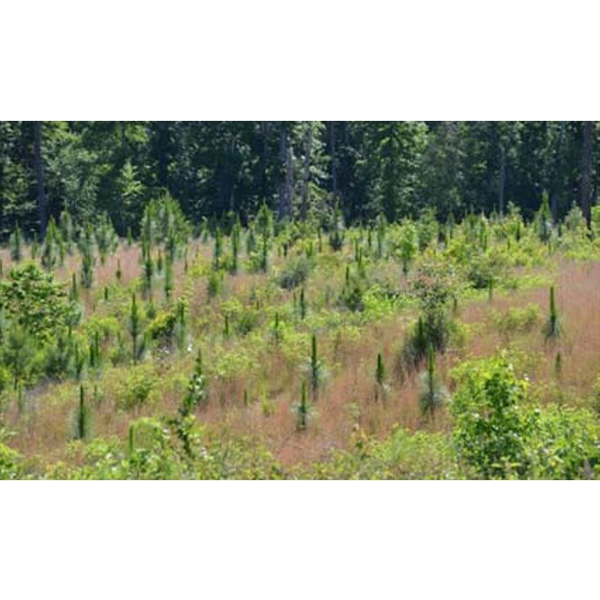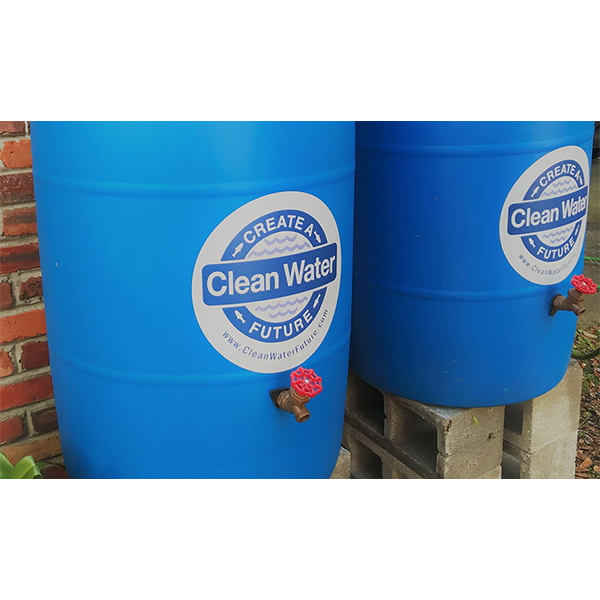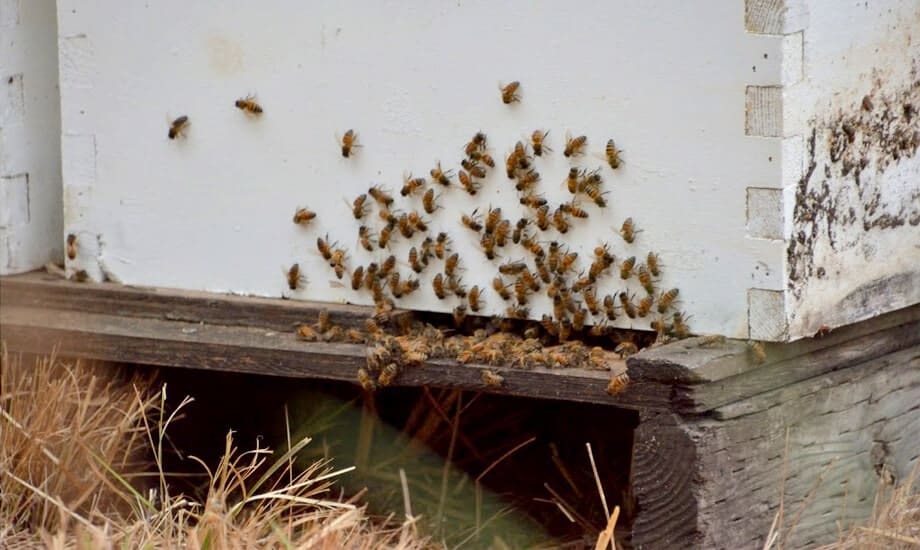Highlights
- In 2021 and 2022, Soterra received Sustainable Forestry Initiative (SFI) certification for forest management activities. Soterra’s land management practices have aligned with SFI principles since 2008.
- We utilize technology to improve our land management practices wherever opportunities arise, including through drone technology.
- In 2022, Soterra forests, across over 176,000 acres under management, sequestered approximately 150,000 metric tons of CO2.
- Our continued progress to diversify Soterra’s revenue streams ensures the financial success of our land management business. In 2022, 47% of Soterra’s revenue was from non-timber land management initiatives.
Why Prioritizing Nature Matters
Greif has a responsibility to create positive impacts on the lands we own and operate. We use fact-based management decisions to find the highest value for our land while adhering to forestry best management practices. Through our land management practices, we promote biodiversity, habitat restoration and decarbonization.
Governance
Beyond Greif’s Board-level oversight of land management, our subsidiary Soterra, LLC, oversees our land management business focused on harvesting and regenerating our timber properties to achieve long-term yields. Soterra’s land management practices adhere to Sustainable Forestry Initiative (SFI) principles and follow the Best Management Practices defined by each state for its managed timberlands. Soterra’s forests provide valuable ecosystem services while serving as a habitat for wildlife and a space for recreational land use. Soterra operates in the Southeastern United States, managing 176,167 acres of timberland in Alabama, Louisiana and Mississippi. Soterra forests sequestered nearly 150,000 metric tons of CO2 in the past year alone. In 2022, Soterra introduced a new department, the Land Resource Group, to conduct annual in-depth resource analyses of our operations and ensure we manage our lands sustainably.
In 2021 and 2022, Soterra received Sustainable Forestry Initiative (SFI) certification for all its forest management activities for lands it owns and manages, including harvesting forest products. Soterra’s land management practices have aligned with SFI principles since 2008. Still, we were motivated to receive official SFI certification to create additional accountability, receive recognition for practices already instituted and align with Greif’s broader sustainability strategy.
In 2022, SFI updated its standards to include climate-smart forestry and fire resilience. As part of the update, we could use either the old or new standards. We opted to align with the latest standards to challenge ourselves and remain at the forefront of land management practices.
SFI and state-specific Best Management Practices guide our harvesting and forestry practices to ensure we adhere to all regulatory requirements and apply the highest standard practices throughout our operations whenever possible. Our sustainable harvest methodology utilizes a 30-year rotation to manage our timberlands. Before harvesting any site, we conduct a thorough review of the area to assess the overall biodiversity value of the site and identify any protected animal or plant species that may be impacted. We develop action plans to resolve the adverse impacts identified in this review. Within each site, if any areas are of high biodiversity value or serve as a habitat to a protected species, appropriate buffer zones are established to eliminate impacts and, if necessary, alter preparation and harvesting methods accordingly. Field inspections are conducted regularly to update forms with potential changes to biodiversity impacts. To date, no Soterra-managed lands have been identified as having high biodiversity value; however, since 2008, 37 G1 or G2 species, representing birds, reptiles, mammals, amphibians, fish, clams, insects and plants, have been identified in the countries/parishes in which Soterra owns land currently. We are also committed to recognizing and respecting the rights of Indigenous Peoples through our. Although no known existing tribes inhabit the territory we operate or own, we strive to learn more about and cooperate with the federally recognized indigenous tribes of Alabama, Louisiana and Mississippi.

Sustainable Forest Management
Greif Paperboard mills are Sustainable Forestry Initiatives (SFI®) Certified, Forest Stewardship Council® (FSC®) C003539 Certified and Program for the Endorsement of Forest Certification (PEFC®) Chain of Custody Certified. Additionally, our Soterra land management facilities are now SFI® Certified. These certification systems provide third-party certification to track and communicate the amount of product from sustainably managed land. Our Sustainable Forestry Policy and SFI Procurement Policy will ensure Greif maintains healthy and product forests on the lands we own and operate.
We utilize technology to improve our land management practices wherever opportunities arise. We use geographic information systems and drone technology to record and track our planting, maintenance and harvesting activities. These technological advances help to keep our colleagues safe and increase efficiency and cost savings. Our drone pilots have mapped just over 200,000 acres of company and private land to date. In 2021, Hurricane Ida made landfall in Louisiana, severely impacting the region. Instead of sending colleagues to assess damage to our lands, potentially putting them in harm’s way, we utilized satellite imagery to strategically deploy drones to map areas significantly affected.
We aim to diversify our land management revenue streams to further align our business with an increasing demand for sustainable products and services while mitigating financial risk. As part of our diversification strategy, we have incorporated solar energy into land management activities. We currently have over 60,000 acres of land on 24 sites under solar options with 12 developers. Louisiana is at the forefront of our solar initiatives, with additional projects in Mississippi and Alabama. We are committed to monitoring any impacts on the biodiversity of the lands we manage as we expand our solar initiatives, including protecting corridors and stream zones as needed.
In 2022, we began a third-party-led assessment to determine the carbon sequestration potential of portions of our managed timberland. In turn, we agreed with an external party to market and sell carbon offsets to emitters. We recognize public scrutiny associated with the validity and quality of carbon offsets. To ensure we provide additionality, we are committing to a zero-harvest policy on lands designated for offsets, waiving our ability to partially harvest these lands. We will continue to evaluate our land base for future carbon projects, focusing on transparency as we further develop this venture.

Rain Barrel Program Receives Stewardship Environmental Award
In 2018, Soterra partnered with the National Estuary Program to use donated Greif drums to collect rainwater. Through the program, each drum is outfitted with a rain barrel conversion kit to help store, capture and put rainwater to good use. The barrels are installed in impoverished areas with historically high utility costs that are also prone to flooding and water pollution associated with excessive water runoff. In 2019, we received an Environmental Stewardship award from Partners for Environmental Progress in recognition of the program. In 2021, 200 drums capable of providing 260,000* gallons of water were installed in the community. In 2022, we delivered another 222 drums to expand this project. We will also provide homeowners with the proper training and instruction upon installation.
*According to the United States Environmental Protection Agency, a rain barrel saves 1,300 gallons of water during peak summer months.
Goals, Progress & Performance
2030 Goal:
- Non-timber revenue to exceed 50% in 2023.
- Receive construction notice on at least one solar farm.
In 2022, we continued to diversify our land management revenue streams by investigating new opportunities with byproducts, consulting services, carbon storage and renewable energy. For example, our consulting services have helped regenerate and plant trees on over 40,000 total acres of private land since 2016. In 2022, we developed a profitable opportunity by selling pine straw byproducts. The success of our recreational leasing business has also been significant in diversifying our land management revenue. In 2023, we expect to further develop our diversification efforts.
Pollinator Habitat Improvement Study
The year 2013 marked the conclusion of a multi-year pollinator research project that occurred on Greif/Soterra LLC timberlands in south Mississippi. The study was conducted in conjunction with the Pollinator Partnership and NAPCC—the world's foremost experts on pollination issues—to learn how pollinators impact wildlife food availability on timber landscapes, the added value of hosting honey bees and beekeepers on the landscape and to discover the best management practice for ecosystem services on forest landscapes.
The study produced some interesting recommendations for sustainable timberland management practices that should benefit timberland owners, pollinator species, local wildlife and ecosystems alike. Greif is committed to its sustainable land use platform and will help distribute any resulting publications to industry partners, regulators and members of the academic community globally to influence positive environmental management in timberland systems.
In 2013, the Sustainable Forestry Initiative (SFI) recognized Soterra LLC and the Pollinator Partnership with its coveted Conservation Leadership Award for this research. The state of Louisiana also recognized the efforts on the program by declaring a state-wide Pollinator Week in the spring of 2018. As of 2021, Soterra LLC continues its support for education, outreach, conservation and scientific research relating to the importance of pollinators in our ecosystem by maintaining its involvement in the Pollinator Partnership as an active Board of Directors member. To learn more, please see our article in Bee Culture Magazine .






